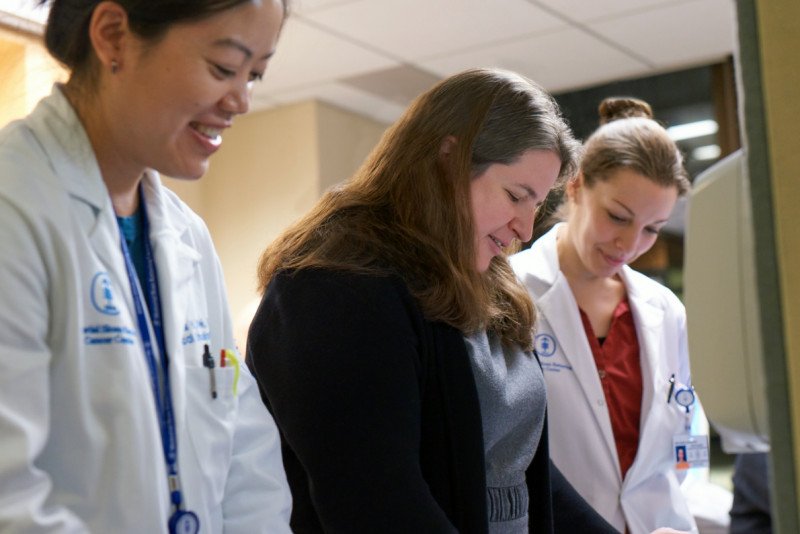
MSK is leading the trials of olaratumab, a promising targeted therapy for treatment of advanced soft tissue sarcoma.
Editor’s note: On April 25, 2019, Eli Lilly, the company that makes olaratumab (Lartruvo®), announced that it was withdrawing the drug from the market. This move came after results from a phase III clinical trial found the drug did not improve survival for people with soft tissue sarcoma. The company said it was establishing a program that would allow people who have benefited from the drug to continue to have access to it.
Original post: A new targeted drug therapy is being shown to extend the lives of people with advanced soft tissue sarcoma by almost a year. Data from a multicenter phase II clinical trial demonstrating these results were published June 9 in The Lancet.
Based on the encouraging outcome, the US Food and Drug Administration has granted the drug, called olaratumab, Breakthrough Therapy status. This designation speeds up the development of drugs that are considered particularly promising. An international phase III trial is already under way, with MSK as the lead center.
“Soft tissue sarcoma is a rare disease with limited treatment options,” says Memorial Sloan Kettering medical oncologist William Tap, the study’s lead author. “The fact that this drug improves overall survival this much is unprecedented. It’s off the charts from anything we’ve previously seen.”
Targeted Drug Therapy for an Uncommon Disease
Soft tissue sarcomas affect the body’s soft tissues, including muscle, fat, tendons, nerves, and connective tissues. There are many subtypes of sarcoma, all of which differ in where they originate and also how they behave. The American Cancer Society predicts that more than 12,000 people in the United States will be diagnosed with a sarcoma this year. When the disease is caught at an early stage, it often can be completely removed with surgery. But once it has spread, it’s very difficult to control.
The current study included 133 patients with a variety of sarcoma subtypes who were randomized to receive either olaratumab combined with the chemotherapy drug doxorubicin or doxorubicin alone, which is a current standard treatment. All of the patients had advanced disease that had spread beyond the original location of the tumor. Some had previously been treated with other drugs and others were newly diagnosed.
The average survival of patients who got the combination was 26.5 months, compared with 14.7 months for patients who got standard treatment, an improvement of 11.8 months.
A Sarcoma Treatment Option that Works for Many Subtypes
Olaratumab is a targeted antibody drug that binds to and blocks a receptor called PDGF-alpha that’s found on the surface of certain cancer cells and in the tumor microenvironment (the area surrounding the tumor).
The most frequent subtype represented in this trial was leiomyosarcoma (a cancer of smooth muscle cells that is a more common type of sarcoma). The drug appeared to work particularly well in this disease. “Something else that was remarkable was that it worked so well in patients who had already received prior therapies,” Dr. Tap says. “The first therapy a person receives for a new diagnosis often has the best chance of controlling their disease, so the fact that we saw such a benefit in patients who had received prior therapy was pretty astounding.”
Olaratumab showed benefit in combination with doxorubicin. According to Dr. Tap, “Olaratumab may be working in more than one way, including by possibly acting on the tumor microenvironment. How the drug works in sarcoma is the focus of several ongoing basic science and clinical research programs.”
The side effects experienced by patients in the trial were mostly those that result from doxorubicin. There was a slight increase in a condition called neutropenia — low white blood cell counts that can increase the risk of infections. But Dr. Tap says those increased rates did not correspond to patients needing to be hospitalized.





